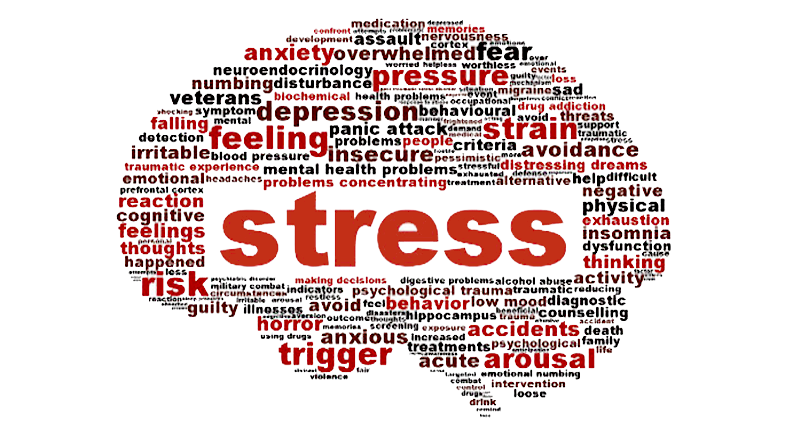Stress

What is stress?
Stress is a normal reaction to life events. It can be caused by anything that puts physical or emotional demands on you. Some common stressors include work, relationships, finances, health problems, and major life changes.
How does stress affect you?
Stress can affect your physical and emotional health. Physical symptoms of stress can include headaches, muscle tension, stomach problems, and changes in appetite. Emotional symptoms of stress can include anxiety, irritability, fatigue, and difficulty concentrating.
Stress can cause a variety of symptoms. These symptoms can include:
- Physical symptoms: Headaches, muscle tension, fatigue, stomachache, changes in appetite, changes in sleep patterns
- Emotional symptoms: Anxiety, irritability, sadness, difficulty concentrating, difficulty making decisions
- Behavioral symptoms: Withdrawal from social activities, increased use of alcohol or drugs, changes in eating habits
Stress can lead to a variety of mental health problems. These problems can include:
- Anxiety disorders: Generalized anxiety disorder, panic disorder, social anxiety disorder
- Depression: Major depressive disorder, dysthymia
- Post-traumatic stress disorder (PTSD): PTSD is a mental health problem that some people develop after experiencing or witnessing a life-threatening event, like war, sexual assault, or a natural disaster.
Stress can also lead to physical health problems. These problems can include:
- Heart disease: Stress can increase your risk of heart disease by raising your blood pressure and heart rate.
- Stroke: Stress can increase your risk of stroke by increasing your blood pressure and making your blood clot more easily.
- Diabetes: Stress can increase your risk of developing diabetes by increasing your blood sugar levels.
How can you manage stress?
There are many things you can do to manage stress. Some helpful strategies include:
- Exercise regularly.
- Get enough sleep.
- Eat a healthy diet.
- Avoid caffeine and alcohol.
- Learn relaxation techniques, such as deep breathing or meditation.
- Talk to someone you trust about how you're feeling.
- Set realistic goals and priorities.
- Take breaks throughout the day.
- Learn to say no.
- When to seek professional help
If you're feeling overwhelmed by stress, it's important to seek professional help. A therapist can help you identify the sources of your stress and develop coping mechanisms.
Here are some additional tips for managing stress:
- Take care of yourself. Make sure you're getting enough sleep, eating healthy foods, and exercising regularly. These things will help you feel better physically and mentally.
- Find healthy ways to relax. This could include reading, listening to music, spending time in nature, or doing yoga.
- Learn to say no. Don't be afraid to turn down requests that are too much for you to handle.
- Set boundaries. Let people know what you're comfortable with and what you're not.
- Take breaks throughout the day. Get up and move around, or step outside for some fresh air.
- Talk to someone you trust. Talking about your stress can help you feel better and cope with it more effectively.
If you're struggling to manage stress on your own, don't hesitate to seek professional help. A therapist can help you identify the sources of your stress and develop coping mechanisms that work for you.